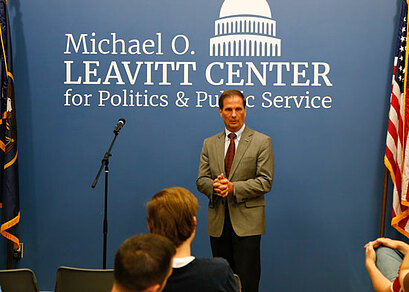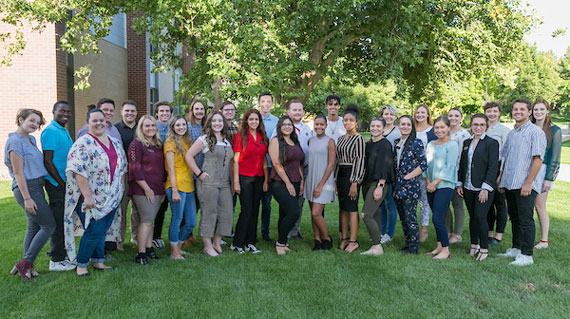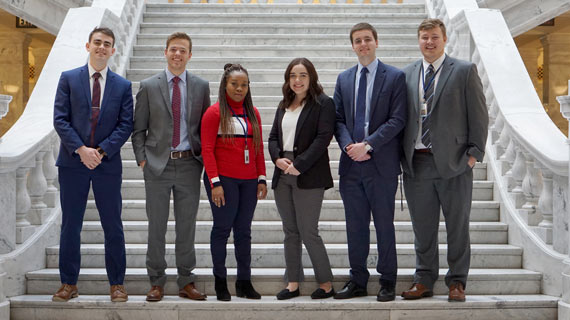From Washington to the West: A Conversation with Chris Stewart
Posted: October 27, 2016 | Author: Cami Mathews | Read Time: 2 minutes
On Thursday, October 27th, Congressman Chris Stewart spoke with students in the Michael O. Leavitt Center for Politics and Public Service at Southern Utah University. Stewart is the Congressman from Utah’s Second Congressional District. He is currently up for re-election. His opponent is Democratic nominee Charlene Albarran.

With about 60 people in attendance, ranging from students to community members, Congressman Stewart had an open discussion with the audience. The conversation started with the Congressman discussing the pros and cons of either a Trump or Clinton presidency. Overall, the Congressman made it clear that he did not want Hillary Clinton in office, but recognized she does have some positive qualities that are not always shown.
Other questions that were asked by the audience included his take on the North Dakota Pipeline and what he deems as the most important issues for the state of Utah. He discussed that he is not as caught up with the North Dakota Pipeline as he wants to be, but did express his concern for everyone involved. For the issues concerning Utah, he told the audience that the state’s public lands issues are rising.
Other areas of concern that Congressman Stewart discussed included the country’s roles in foreign affairs and the economy. He spoke of how the country’s foreign affairs were on a slippery slope and that he hopes the country can find their footing and get back to the world power it once was.
Overall the community was able to have a discussion with someone who represents them in Washington, DC. The students were able to catch a glimpse into the life of a politician and see how his work directly affects them.
Congressman Chris Stewart grew up in Cache Valley, graduated from Utah State University, and joined the United States Air Force. He has also written 17 books, several of which have become national bestsellers.
This article was published more than 3 years ago and might contain outdated information or broken links. As a result, its accuracy cannot be guaranteed.



